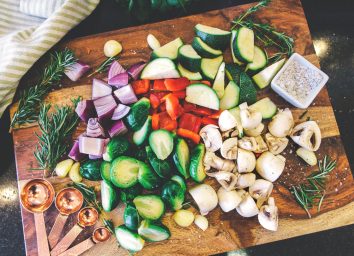7 Tips for Safe Cooking Amid Coronavirus Concerns
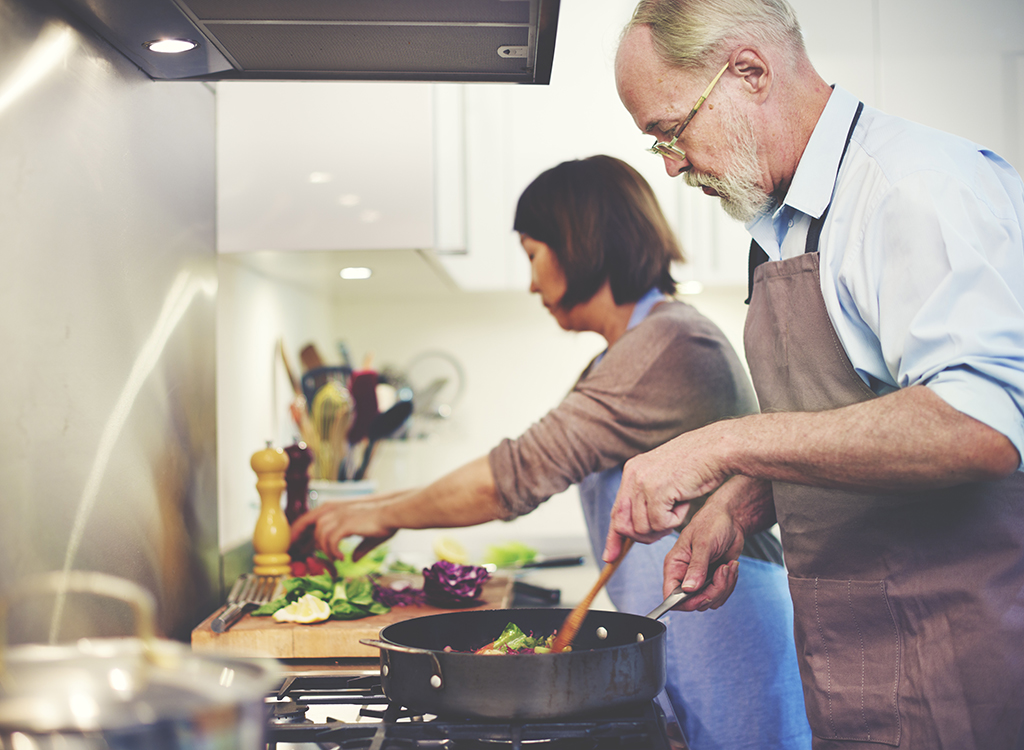
The coronavirus pandemic has even the most skeptical people showing caution and concern about how to stay safe and avoid the contagion. Since the White House guidelines came out two weeks ago, many states have completely shut down bars, restaurants, and non-essential places of business. Pretty much overnight, cooking at home has become the safest—and pretty much only—option.
Of course, you can always order food as takeout or delivery, which is a great way to support your local restaurants. But doing so for every meal gets expensive. Plus, there are so many recipes that can make the time you do spend cooking fun and rewarding.
What follows are some super easy tips to keep you, and others around you, safe from COVID-19 while cooking in the kitchen. Do these, and you'll have a lower risk of contracting the virus… or any germs, for that matter.
Wash your hands!
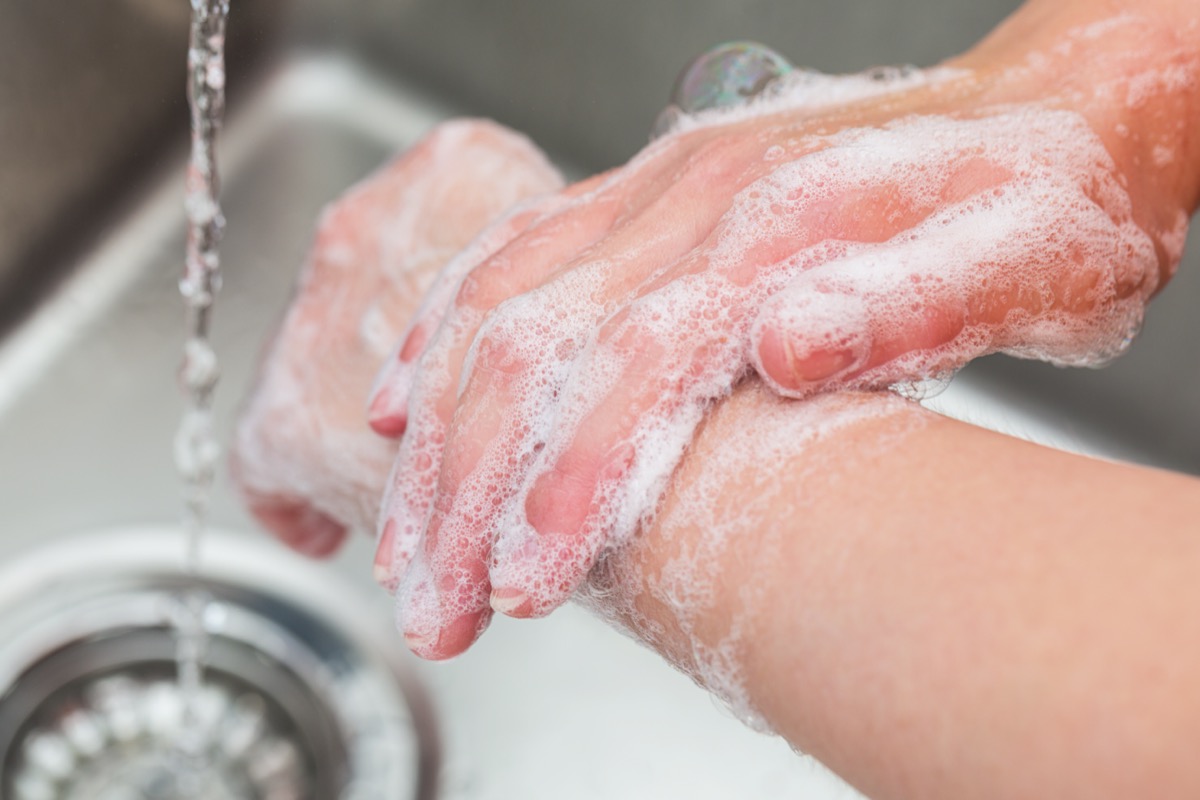
Yes, you almost certainly have heard this particular tip a thousand times, but here is the 1,001 time. The best way to avoid contracting COVID-19 is still washing your hands thoroughly with hot water and soap for 20 seconds. If you are going to the market, the last thing you should do before leaving your place—and the first upon returning home—is a good hand wash. Want to wear cleaning or rubber gloves while you're in the kitchen? Fine, but do not let that give you a false sense of security that leads you to potentially touch your face like it's no big deal.
Keep your counters clean
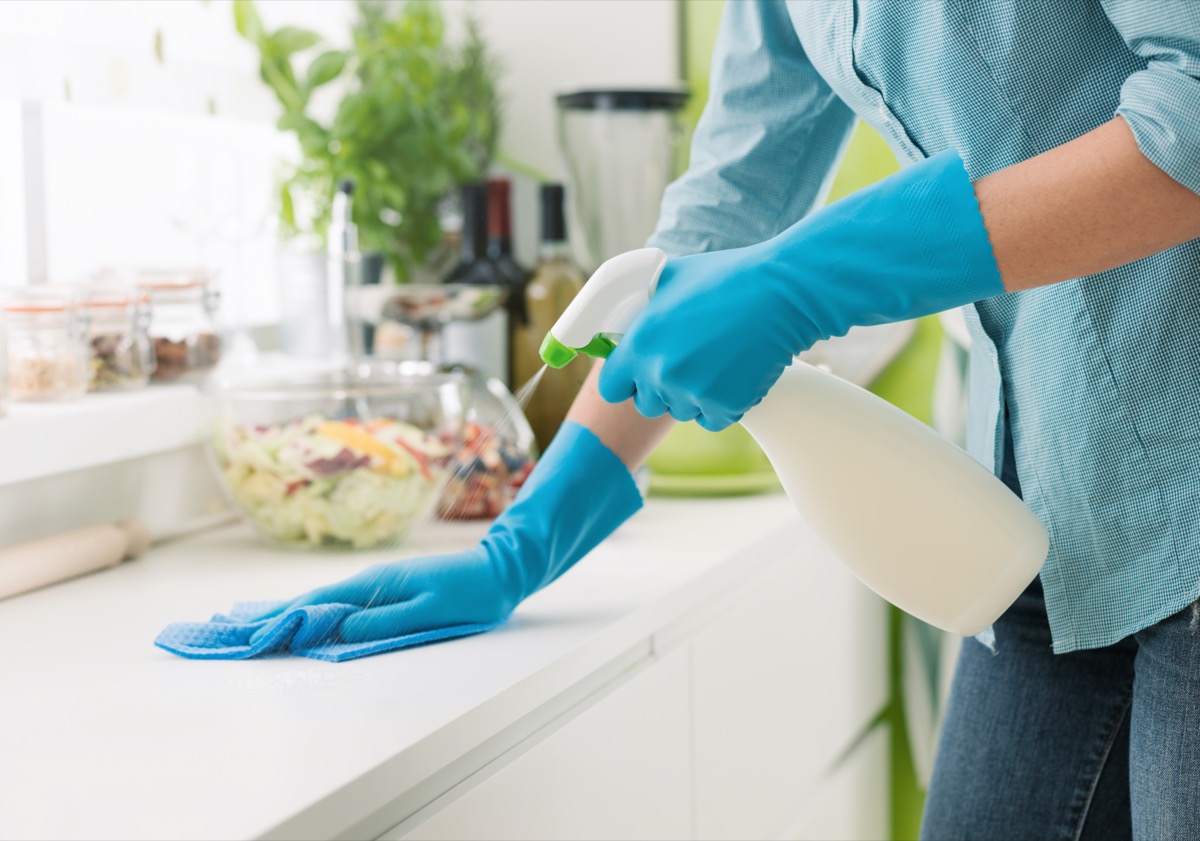
Keep your counters clean! Scientists from the National Institutes of Health (NIH), the Centers for Disease Control and Prevention (CDC), UCLA, and Princeton University attempted to mimic the coronavirus being deposited from an infected person (like through coughing or touching objects) onto everyday surfaces. They investigated how long the virus remained infectious on those surfaces and found that the contagion can last as long as 7 hours on some surfaces, like plastic, and 3 to 4 hours on metal. This is why it's so crucial to clean your kitchen thoroughly before and after use.
Take care of food packaging
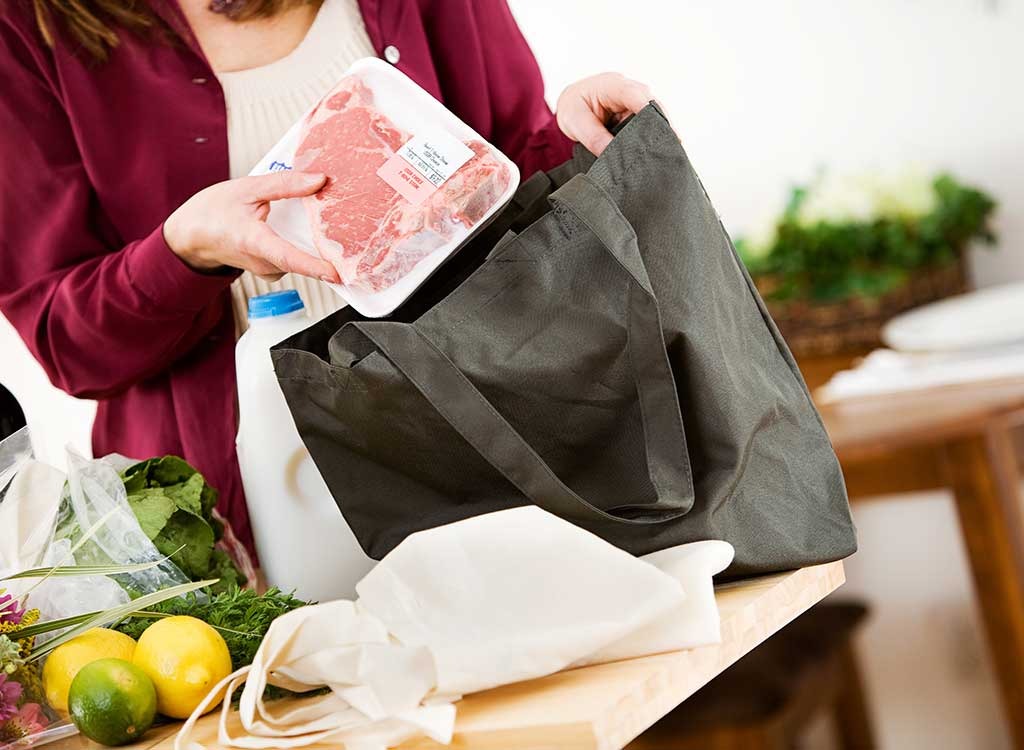
When you bring your groceries home, place grocery packaging in your kitchen sink as you unpack it. This makes it much easier to simply clean the sink—as opposed to kitchen counters—after disposing of the packaging.
Work solo
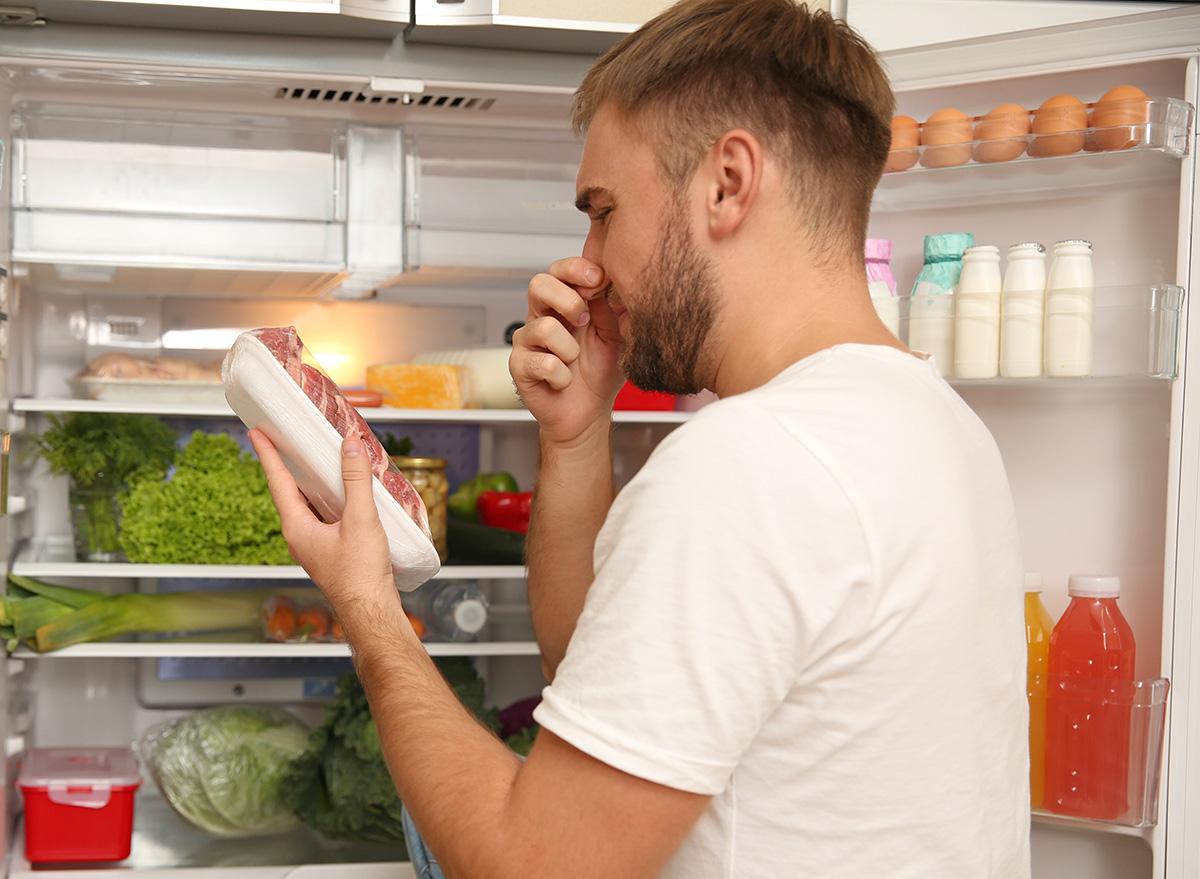
File this under common sense but we live in a time when common sense needs to be reiterated. The less contact you have with others, the much lesser risk you have in contacting any contagion. Social distancing works!
Wash your vegetables
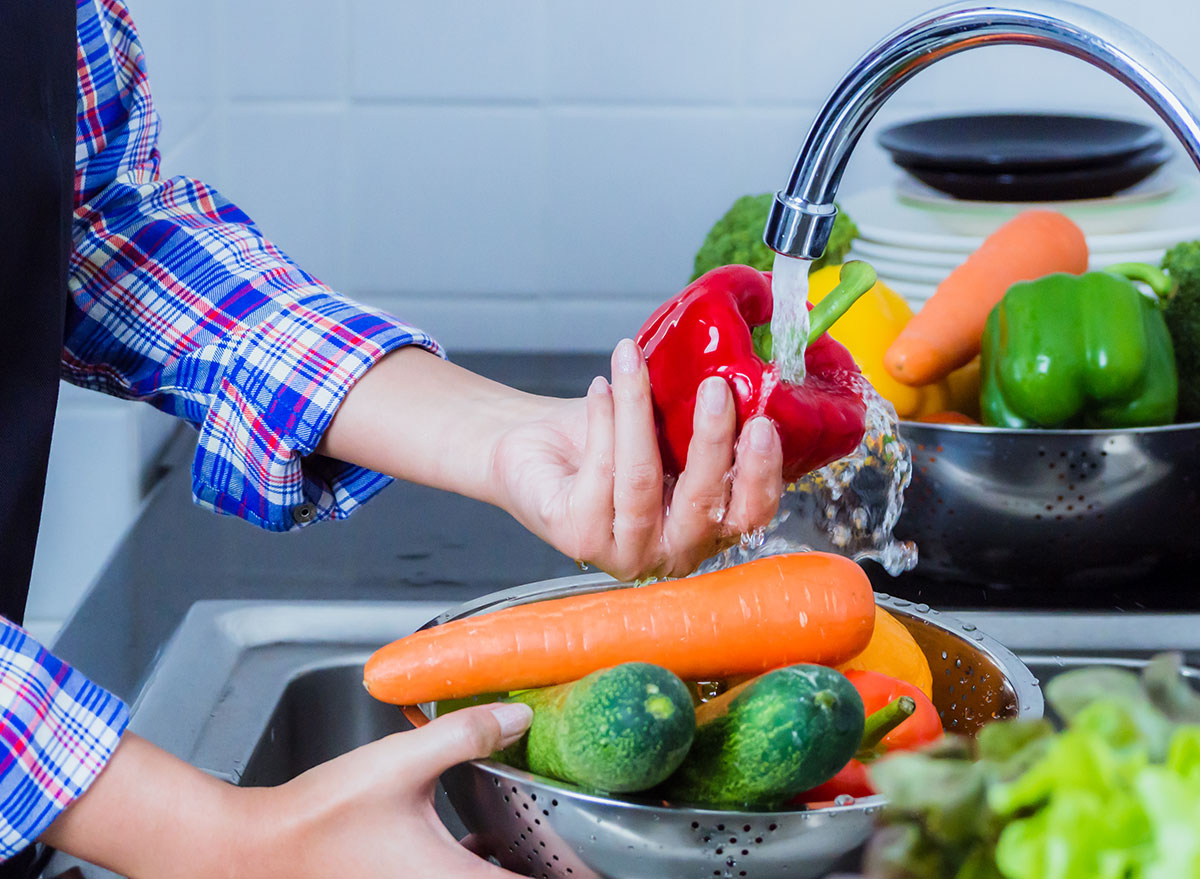
No need to use chemicals to wash your fruit and vegetables. Just wash them with a lot of water and a good scrub. And then make sure you wash your hands before and after handling them as well.
RELATED: Can Coronavirus Be Transmitted Via Fresh Fruits and Vegetables?
Cook your food to 165 degrees
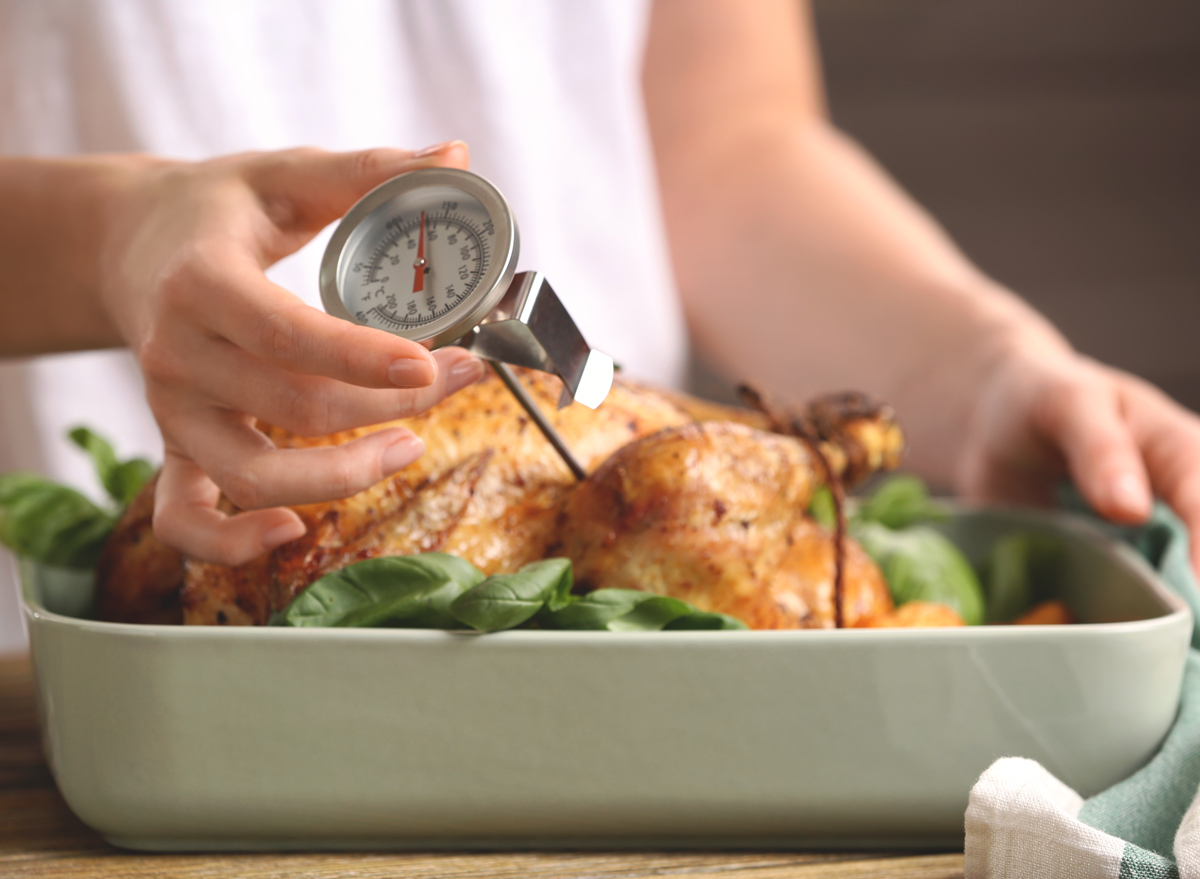
A general rule for cooking is get the food to 165 degrees to kill all germs. Cooking it to 165 degrees is a universal temperature which will protect you from germs, especially if you are reheating food you have ordered from a restaurant.
Don't share food
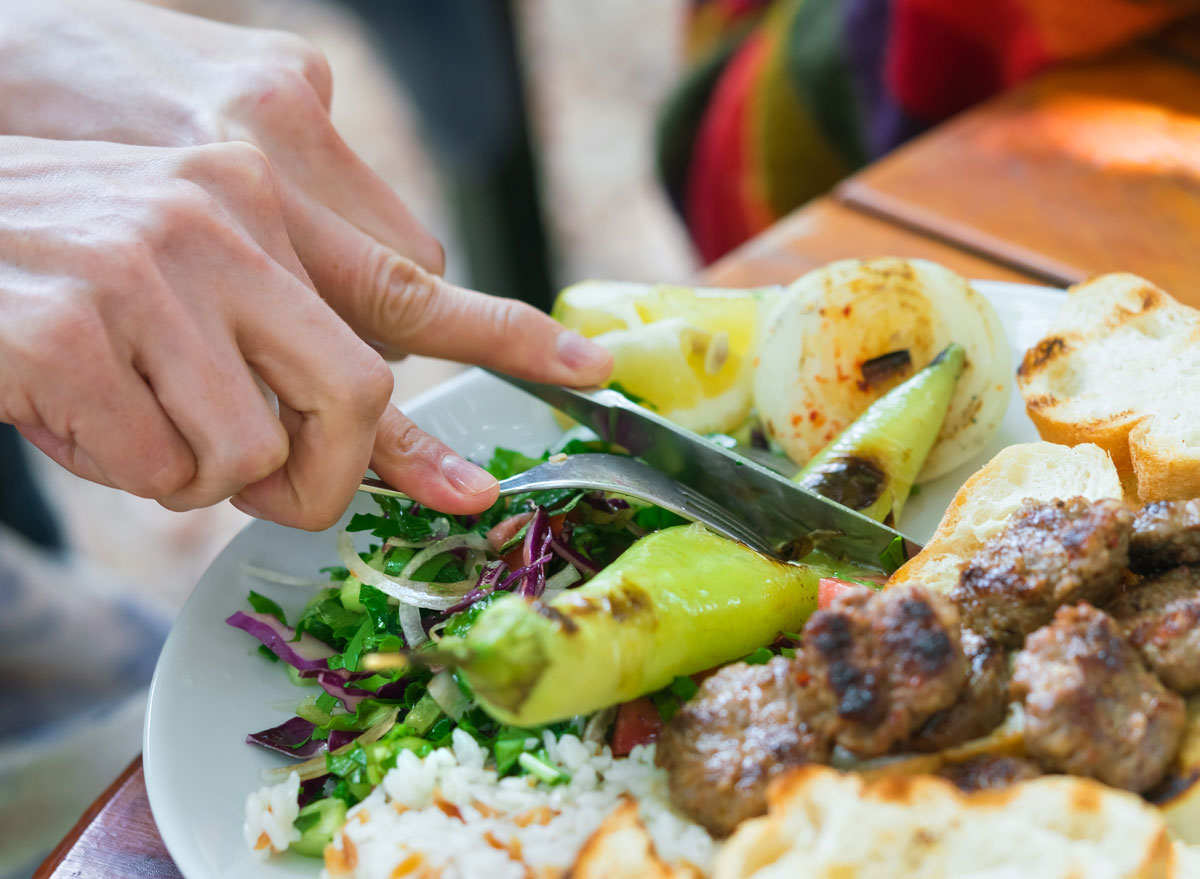
File this under social distancing. As much as you or your family may love to steal a bite from each other's plates, now is not the time to be taste-testing or stealing other people's food. Don't share food from your plate to another person's, or vice versa. It just makes sense to keep your food to yourself.
READ MORE: 7 Tips for Safe Food Ordering amid Coronavirus Concerns
